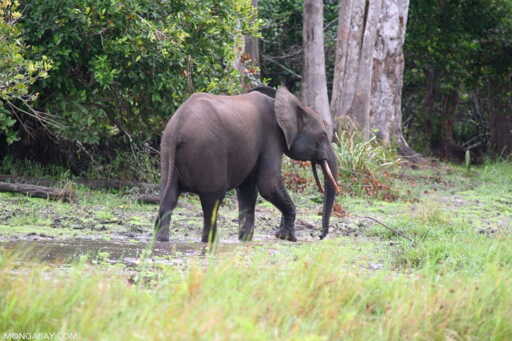In 2017, when Vincent Deblauwe joined the Congo Basin Institute in Cameroon to study African ebony, he soon realized the fate of the tree lay with another species. Around campfires and during treks, the Indigenous Baka people told him that the forest elephant (Loxodonta cyclotis) was key to the survival of African ebony (Diospyros crassiflora). His fieldwork confirmed their knowledge. In patches of forest where elephants had been wiped out, ebony saplings were scarce. Poaching, driven by the ivory trade in China and Southeast Asia as well as in the West, has devastated elephant populations, with numbers down by 86% in three decades. The long-term implications for forests remained obscure until now, reports Spoorthy Raman. Deblauwe and colleagues combined Indigenous insights with spatial, genetic and experimental data, publishing their findings in Science Advances. Elephants consume ebony fruits and, by excreting the seeds in dung, shield them from rodents and herbivores. Without elephants, the fruits rot beneath the mother tree. In forests lacking the animals, ebony saplings fell by 68%. “Our findings show that forest elephants preferentially consume ebony fruits and play a crucial role in seed dispersal,” said study co-author Thomas Smith, founder of the Congo Basin Institute. Stephen Blake, an ecologist at Saint Louis University in the U.S., called the work a rare demonstration of how tree populations collapse with the loss of their seed dispersers. The implications extend well beyond ebony. Up to 90% of rainforest tree species rely on animals to spread their seeds. Elephants favor slow-growing,…This article was originally published on Mongabay
From Conservation news via this RSS feed


